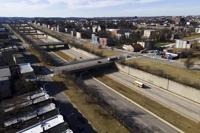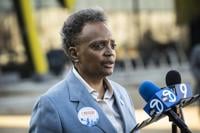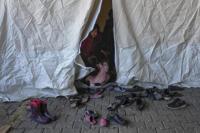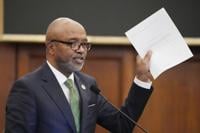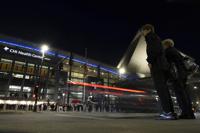BALTIMORE (AP) — Using $2 million in federal grant funding, Baltimore officials will start developing a plan to reconnect Black neighborhoods by potentially demolishing a stretch of thoroughfare that displaced hundreds of families amid a failed highway construction project decades ago.
The city’s so-called “Highway to Nowhere” was designed to connect the downtown business district to interstates surrounding Baltimore, and officials used eminent domain to demolish nearly 1,000 homes in the 1960s and ’70s, cutting a wide swath through predominantly middle class neighborhoods in majority-Black west Baltimore.
But construction of the thoroughfare was never finished — partly because residents in whiter, more affluent communities successfully campaigned against it — and the endeavor became largely pointless.
The project has received renewed attention in recent years as Baltimore leaders seek to address longstanding sources of inequity that have helped shape the city, which remains heavily segregated along racial and economic lines.
“I remember the once vibrant and connected communities that existed before the ‘Highway to Nowhere,’” U.S. Rep. Kweisi Mfume, a Baltimore Democrat, said in a statement announcing the grant award earlier this week. “It’s never too late to undo the wrongs of the past if we have a clear and renewed vision for the future.”
The money will allow city transportation officials to create a plan for redeveloping the site, which could include demolishing the 1.4-mile stretch of expressway and replacing it with parkland or other public space.
In addition to transforming the area, the plan will focus on strengthening the surrounding community through improved access to jobs and quality housing, officials wrote . They said it’s time for “catalytic investment” in impacted communities, calling the expressway “both a physical and symbolic barrier to progress.”
The funding comes as part of a $1 trillion bipartisan infrastructure bill that Congress passed in November 2021. The package included a grant program aimed at revitalizing areas harmed by highway construction, an issue members of Maryland’s congressional delegation had been working on for years with Baltimore’s failed highway project in mind.
With the incoming grant money, Baltimore Mayor Brandon Scott said the city can finally begin to heal.
“For over 50 years, this callous and discriminatory structure has caused generational damage to our community — displacing 1,500 residents, shuttering businesses and destroying homes — and this is a substantial step in starting that healing process,” Scott said in a statement Thursday.
At a public listening session last week, west Baltimore residents also demanded tangible improvements to help rebuild nearby communities suffering from deepening .
In Poppleton, one of the affected neighborhoods, residents are currently they often compare to the failed expressway. They filed a complaint last week asking federal officials to investigate whether Baltimore’s redevelopment policies are perpetuating racial segregation and violating fair housing laws by disproportionately displacing Black and low-income residents, often using eminent domain to seize private property for public use.


